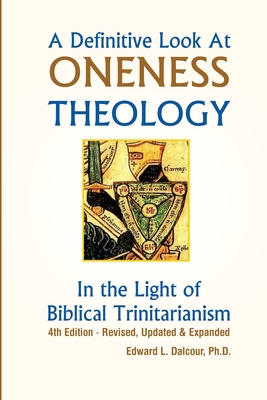A Definitive Look at Oneness Theology: In the Light of Biblical Trinitarianism (4th ed.) critically examines the claims of Oneness unitarian theology in light of biblical exegesis. Specifically, this book clearly shows that the entire content of biblical revelation reveals that the one true God is triune existing in three distinct persons-the Father, and the Son, and the Holy Spirit. Further, the triune nature of God has been implicitly and explicitly affirmed by the early church, important Ecumenical Councils (and their resulting Creeds), and contemporary conservative biblical scholarship.Oneness theology rejects the biblical doctrine of the Trinity erroneously assuming a unitarian view of God-namely, a one person deity whose name is "Jesus." Hence, it teaches that Jesus is the Father, Son, and Holy Spirit. Oneness advocates then see the titles "Father," Son," and "Holy Spirit" as mere names or roles that Jesus manifests and not as distinct persons. They embrace the notion that "Son" represents the humanity of Jesus while "Father" (and Holy Spirit) represents the deity of Jesus, thus denying the unipersonality, deity, and preexistence of the Son, Jesus Christ. This view sharply opposes the biblical position that the Son had/shared glory "with" the Father "before the world was" (John 17:5). Since, the biblical presentation of the preexistence of the Son (esp. as Creator) is the Achilles' heel of Oneness doctrine, this book devotes the needed space and attention to the exegesis of key passages (such as Gen. 19:24; John 1:1-18; 17:5; Col. 1:16-17; Phil. 2:6-11; and the prologue of Hebrews), which positively affirms biblical Trinitarianism. On this point alone, the Oneness position is shown biblically false.










